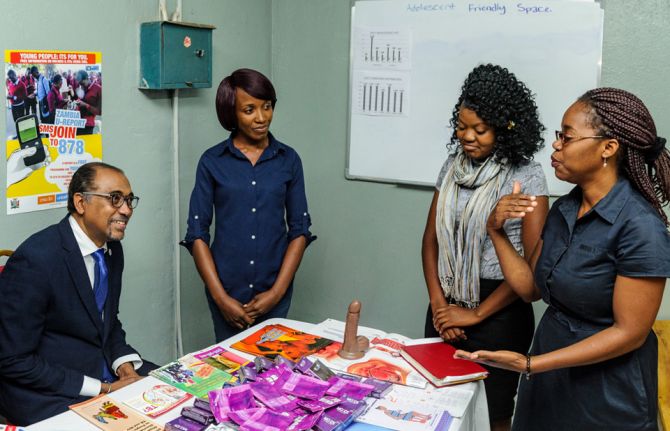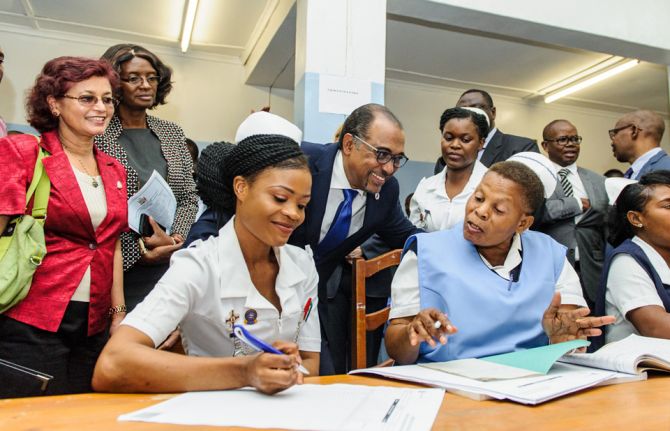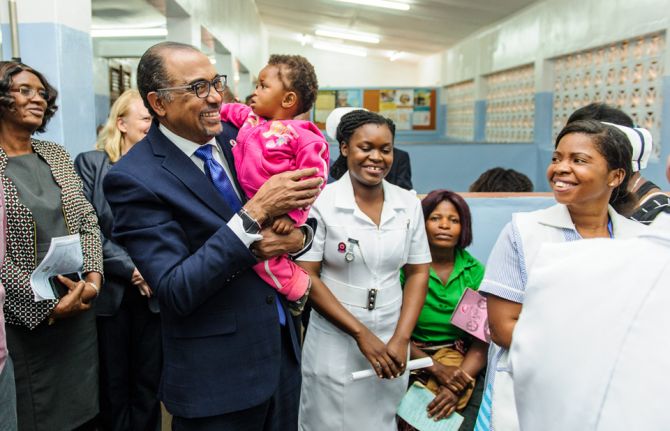



Feature Story
Communities at the heart of the AIDS response in Zambia
07 March 2018
07 March 2018 07 March 2018Zambia has made good progress in its AIDS response. In 2016, the country had more than 800 000 people on HIV treatment, with 83% of pregnant women living with HIV accessing it. To better understand the progress, and the challenges, Michel Sidibé, UNAIDS Executive Director, visited the Chilenje health facility in Lusaka, Zambia, during a visit to the country from 5 to 7 March.
The Chilenje facility offers HIV treatment, a prevention of mother-to-child transmission of HIV programme and tailored services for adolescents and young people. At the facility’s youth-friendly space, peer educators facilitate service uptake by young people and reach out to schools and other groups within their community with counselling and sensitization.
“We need to build cities of the future where services are not only available to people, but they are also tailored to their needs. This is the rationale behind the Fast-Track cities initiative, of which Lusaka is an excellent example,” said Mr Sidibé during his visit.
The facility offers extended hours in the evening and weekends so that people who are unable to access health services outside of standard operating hours can access HIV treatment and other services.
“Young people often fall through the cracks of the health system for fear of judgement or stigma. Owing to the large number of adolescents and young people in our community, we have set up a youth-friendly space,” said Malinba Chiko, the Superintendent of the Chilenje health facility.
Earlier in the day, Mr Sidibé met with members of civil society, who raised the issue of access to HIV and sexual and reproductive health services for key populations, especially gay men and other men who have sex with men and sex workers. Mr Sidibé reiterated that civil society is at the heart of the AIDS response and, for it to be sustainable, the voice and decision-making of civil society are essential.


